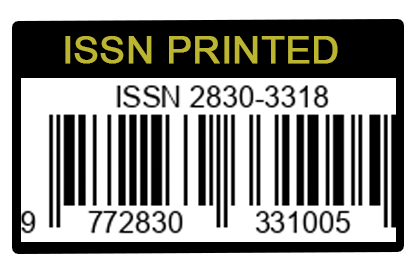Analisa Peran Kepala Madrasah Dalam Meningkatkan Manajemen Mutu Pendidikan Dan Kinerja Guru Di MTS Se-Rantau Kampar Kiri
DOI:
https://doi.org/10.53398/ja.v1i2.201Keywords:
Role, Principal; Teacher Performance; Quality Management of Education;Abstract
This study aims to determine the role of principal, what are the supporting and inhibiting factors of the principal's role in improving education quality management and teacher performance at MTs Se-Rantau Kampar Kiri. Includes a type of field research with a qualitative and phenomenological method approach. Data collection is obtained using observation, interview, documentation, and is complemented by validity testing. The data analysis technique uses procedures that include data collection, data reduction, data presentation, drawing conclusions and verification. The results of study found that the role of principal in improving education quality management and teacher performance includes; (1) Arranging curriculum planning that will be taught by teachers; (2) Organizing students' learning experiences; (3) Organizing students' skills well in religious studies; (4) Promoting madrasah libraries; (5) Strengthening students' interest in reading; (6) Strengthening student achievement in all fields; (7) Assigning teachers according to their expertise; (8) Paying attention to the development of students taught by these teachers; (9) Supervising the teacher who teaches once a week; (10) Increasing work commitment with teachers in learning; (11) Empowering all elements of the madrasah to improve learning achievement; (12) Providing pre-facilities to support education; (13) Conducting evaluation meetings once a month; (14) Making decisions based on agreement with the teachers' council; (15) Establishing communication with all components to improve student learning achievement. Then the factors that support the role of principal are; (1) Communication; (2) Freedom; (3) Work experience, while the inhibiting factors can be said to be non-existent, because all of these factors can be addressed by the principals of MTs in Rantau Kampar Kiri
References
Abuddin Nata, (2012). Akhlak Tasawuf dan Karakter Mulia, (Jakarta: Raja Grafindo).
Abuddin Nata, (2020). Penguatan Materi dan Metodologi Pendidikan Agama Islam. Jurnal Pendidikan Islam, 9 (2): 244-266.
Ahmad Tafsir, (2013). Ilmu Pendidikan Islam, (Bandung: Remaja Rosda Karya).
Bloom, Benjamin S. Krathwohl, DR. Maria BB, (1964). Taxonomy of Educational Objectives: The Classification of Educational Goals. Handbook II. Affective Domain, (New York: David McKay Company, Inc.).
Carin AA dan Sund RB, (2005). Teaching Science Through Discovery, (Culumbus: Charles E. Merril Publishing Company).
Depdiknas, (2011). Undang-Undang Sisdiknas tahun 2003, (Jakarta: Sinar Grafika).
Fauziah, R. et al, (2013). Pembelajaran Saintifik Elektronika Dasar Berorientasi Pembelajaran Berbasis Masalah. Jurnal Invotec, 9 (2): 165-178.
Fattah, Nanang, (2000). Manajemen Berbasis Sekolah. (Bandung: Andika).
Fattah, Nanang, (2011). Landasan Manajemen Pendidikan, (Bandung: Remaja Rosda Karya).
Ilma Ayunina dkk, (2019). Tujuan Pendidikan Islam dalam Membangun Karater Siswa di Era Digital. Jurnal Pendidikan dan Studi Islam, 5 (2).
Isnarto, Wahyudin W, Suryadi D. et al, (2014). Students’ Proof Ability: Exploratory Studies of Abstract Algebra Course. International Journal of Education and Research, 2 (6): 215-228.
Kemendikbud, (2013). Pendekatan Scientific (Ilmiah) dalam Pembelajaran, (Jakarta: Pusbangprodik).
Lexy J. Moleong, (2020). Metodologi Penelitian Kualitatif. Jural Ilmiah: 274-282.
Muslim Nurdin dkk, (1995). Moral dan Kognisi Islam, (Bandung: CV Alfabeta, ed. 2. h).
Nur Zayin, (2011). Gerakan Menata Mutu Pendidikan, (Yogyakarta: Ar Ruz Media).
Oemar Hamalik, (2009). Pendidikan Guru Berdasarkan Pendekatan Kompetensi, (Jakarta: Bumi Aksara).
Prayitno dan Amti Erman, (2015). Dasar-Dasar Bimbingan dan Konseling, (Jakarta: Rineka Cipta).
Ramayulis, (2008). Ilmu Pendidikan Islam, (Jakarta: Kalam Mulia).
Sahmiar S., (2011). Membangun Moralitas melalui Pendidikan Agama. Al Hikmah, Jurnal Keilmuan Keislaman, 8 (1): 1-17.
Suwanto, (2016). Peran Kepala Sekolah dalam Manajemen Budaya Islami Berbasis Pendidikan Karakter di SMP Islam Sultan Agung 1 Seroja Semarang. Jurnal Pendidikan Agama Islam, 4 (1): 24-46.
Syaiful Bahri Djamarah dan Aswan Zain, (2014). Strategi Belajar Mengajar, (Jakarta: Rineka Cipta).
Umi Hanik, (2011). Implementasi Total Quality Management (TQM) dalam Peningkatan Kualitas Pendidikan, (Semarang: Rasail Media Group).
Downloads
Published
How to Cite
Issue
Section
License
Copyright (c) 2023 Jurnal Al-Kifayah: Ilmu Tarbiyah dan Keguruan

This work is licensed under a Creative Commons Attribution 4.0 International License.



.png)






